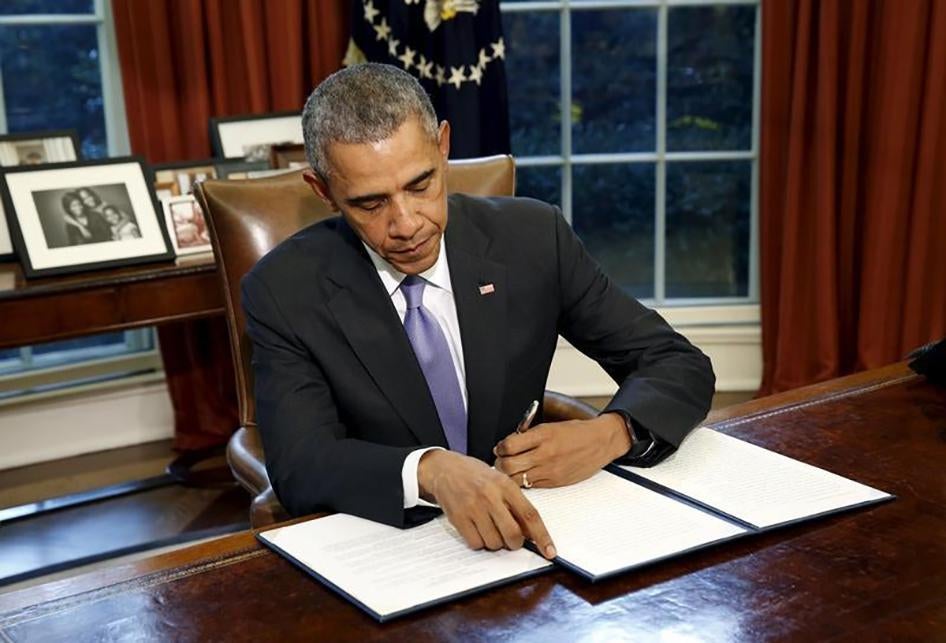(Washington, DC) – United States President Barack Obama’s veto of a defense spending bill on October 22, 2015, signals a renewed effort to close the Guantanamo Bay detention facility, Human Rights Watch said today. The National Defense Authorization Act (NDAA), passed by the Senate on October 7, contained provisions that would have made it more difficult for the president to close the prison.
“President Obama finally flexed some executive muscle to close Guantanamo,” said Laura Pitter, senior national security counsel at Human Rights Watch. “Obama’s veto of the defense bill is a hopeful sign he is getting serious about closing the facility, but he should also get serious about ending indefinite detention without trial.”
More than 100 men remain detained at Guantanamo, the vast majority without charge or trial. The administration should ensure that any plans to close Guantanamo include ending indefinite detention without trial, Human Rights Watch said. The administration’s plan to close Guantanamo reportedly involves moving some detainees to the US for continued indefinite detention. Current US law prohibits transfers of Guantanamo detainees to the US for detention or trial, so Obama may try to include US transfer provisions into a renegotiated NDAA. Detainees still at the facility should either be prosecuted in courts that comport with international fair trial standards or be released, Human Rights Watch said.
The bill vetoed by Obama maintained a ban on detainee transfers to the US and imposed onerous new reporting requirements for transferring detainees to another country. The Obama administration had in the past said it would veto the NDAA over similar Guantanamo provisions, but it had previously not done so.
The vetoed NDAA contained important provisions that bolstered already existing bans on the use of torture. The bill required intelligence agencies, along with the Defense Department, to abide by rules in the Army Field Manual on Intelligence Interrogation. It also gave the International Committee of the Red Cross (ICRC) “notification of, and prompt” access to all prisoners. Congress and the president should work to ensure that any renegotiated NDAA contains these important provisions, Human Rights Watch said.








